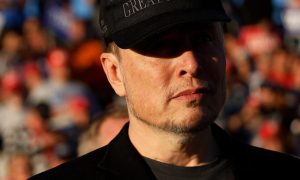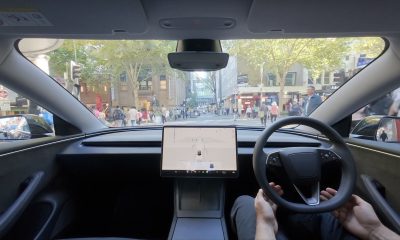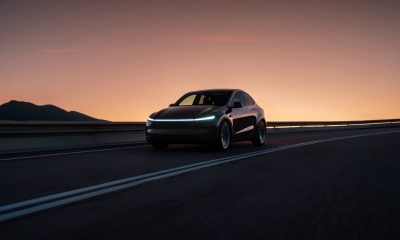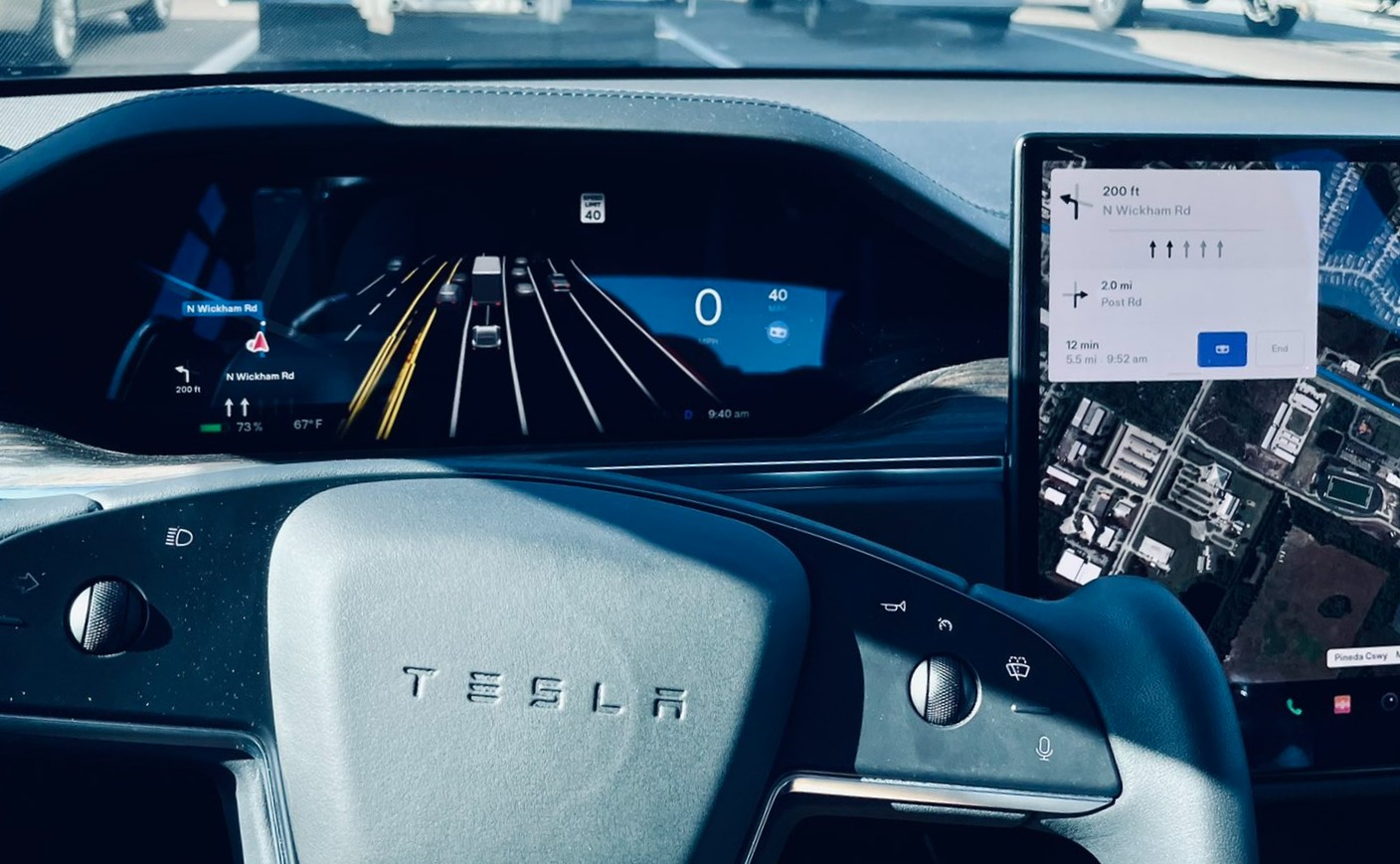

News
Tesla sends cease-and-desist letter against ad claiming FSD will “mow down children”
It took a while, but Tesla finally seems to be putting some effort into curbing an aggressive and controversial anti-FSD ad that claims that the company’s advanced driver assist system is unsafe and will “indiscriminately mow down children.” A cease-and-desist letter from the electric vehicle maker has reportedly been sent to The Dawn Project, an advocacy group from Dan O’Dowd, the CEO of Green Hills Software, a company that is also developing self-driving software.
The Anti-FSD Ad
Earlier this month, O’Dowd, through The Dawn Project, started pushing an anti-FSD ad that supposedly showed a Model 3 hitting a child-sized mannequin while FSD was engaged. The video and O’Dowd’s succeeding Twitter commentary were salacious, so it was no surprise that the ad’s allegations were echoed by numerous news outlets. The campaign attracted attention and criticism from Tesla supporters, however, some of whom proceeded to point out discrepancies in the anti-FSD ad.
A number of FSD Beta testers, who have been using Tesla’s advanced driver-assist system for years, proceeded to conduct tests of their own, showing that FSD Beta does stop for people. Others observed that the driver of the Model 3 in O’Dowd’s test intentionally ignored safety warnings from the vehicle. Even EV fan blog Electrek pointed out a number of inconsistencies with O’Dowd’s supposed FSD test results and data, including a sequence in the ad when the advanced driver-assist system was not engaged at all.
Cease-And-Desist
In its cease-and-desist letter, which was retrieved by The Washington Post, Tesla objected to the anti-FSD ad. The company alleged that the footage being pushed by O’Dowd was defamatory and misrepresented the capabilities of its advanced driver-assist system. Tesla demanded that the anti-FSD campaign be immediately halted and the videos be removed.
“The purported tests misuse and misrepresent the capabilities of Tesla’s technology, and disregard widely recognized testing performed by independent agencies as well as the experiences shared by our customers,” Tesla deputy general counsel Dinna Eskin wrote. Tesla also accused O’Dowd’s team of “unsafe and improper use” of FSD Beta. “Your actions actually put consumers at risk,” the EV maker added.
O’Dowd has reacted strongly to the letter. In a post on Twitter, O’Dowd noted that Musk was threatening to sue him. The Green Hills CEO included an incendiary illustration captioned with “Elon Musk’s Idea of Free Speech” on his post, which depicted Musk naked on his plane with a bound woman sandwiched between two male lawyers. The image seems designed to bait Musk, though Tesla itself has not issued a statement about its cease-and-desist letter.
“This letter is so pathetic in terms of whining: Mr. Free Speech Absolutist, just a crybaby hiding behind his lawyers,” O’Dowd told the Post. He also stated that he does not intend to take down his anti-FSD campaign. Instead, O’Dowd has pledged to put even more money into his anti-FSD efforts.
Not the First Time
This is not the first time that Dan O’Dowd has put Tesla in his crosshairs. Earlier this year, O’Dowd ran for California Senate with the sole purpose of stopping Tesla’s driver-assist systems, which he claims are the worst he has seen. For context, O’Dowd has stated that his software never fails and is unhackable, a claim that has been challenged by cyber security advocates.
Interestingly enough, Politico reported that O’Dowd actually did not plan to win a seat in the CA Senate at all — he was simply in the race because running for office entitled him to the lowest available ad rate in the run-up to the election. It also granted a higher degree of first amendment protection for his loaded claims against Tesla. Ultimately, O’Dowd ended up spending $3.8 million during his campaign — one of the most out of CA Senate candidates— but it resulted in him only getting 1.1% of the votes.
Don’t hesitate to contact us with news tips. Just send a message to simon@teslarati.com to give us a heads up.
Elon Musk
Tesla CEO Elon Musk hits back at drug use claims, calls publications ‘hypocrites’
Elon Musk showed a clean drug test, dispelling any rumors of drug use that came from unfounded reports from two large media outlets.
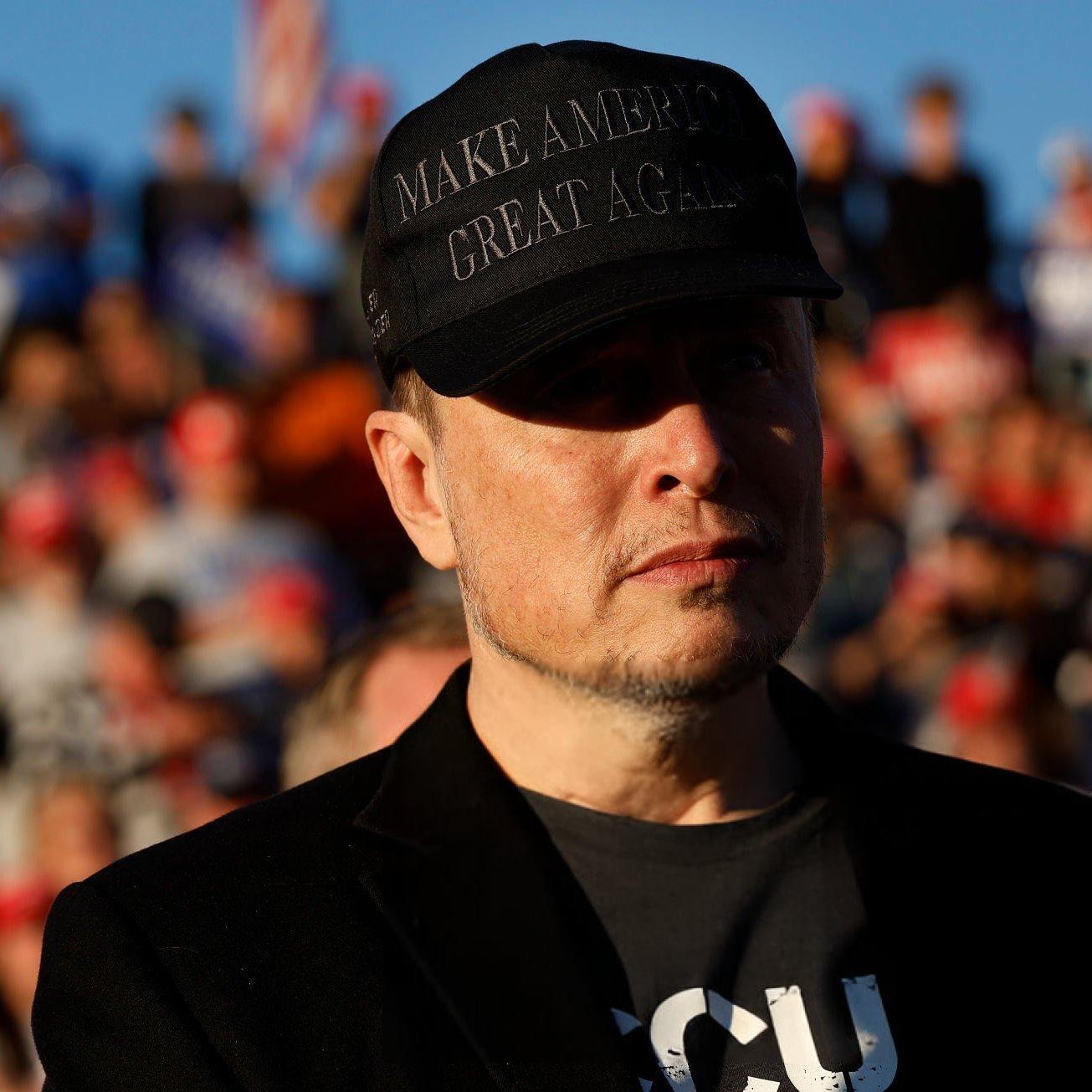
Tesla CEO Elon Musk has responded to a report from the Wall Street Journal and the New York Times, as both publications claimed he was abusing drugs while being involved with President Trump on both the campaign trail and while he was active within the administration after the election.
A bombshell report from the New York Times, published in late May, stated that Musk was regularly using things like ketamine, ecstasy, and psychedelic mushrooms, and also stimulants like Adderall, during his time within the Trump administration.
The reports cited inside sources who claimed the Tesla and SpaceX frontman was using substances during his time with the government.
However, Musk published the results of a recent drug test performed at Fastest Labs of South Austin. They showed ‘Negative’ results across the board:
lol pic.twitter.com/pMe3YfXFxS
— Elon Musk (@elonmusk) June 17, 2025
Musk was not done there.
He went on to say the New York Times “lies as easy as breathing. It’s normal for them.” He also said both the Times and Wall Street Journal reporters should also publish their own drug test results, stating, “They won’t, because those hypocrites are guilty as sin.”
Great idea. I hereby challenge the NYT and WSJ to take drug tests and publish the results!
They won’t, because those hypocrites are guilty as sin. https://t.co/Z6kf6sj2mS
— Elon Musk (@elonmusk) June 17, 2025
Musk said years ago that he received ketamine prescriptions from doctors to treat depression. He said he had it “years ago and said so on X, so this is not even news.” He also said that ketamine “helps for getting out of dark mental holes, but haven’t taken it since then.”
Tesla fans and Musk enthusiasts have joked for days now that, if Musk were to be on drugs, other CEOs should also do them, considering his persistence on work-related projects, long hours, and commitment to his job.
If Elon is on any drugs, I want what he’s having 🤣 pic.twitter.com/dRIuikDyym
— Adam Lowisz 🇺🇸🇵🇱🇪🇺🇬🇧🇺🇦 (@AdamLowisz) June 17, 2025
Musk has now proven that there has been no drug use with this test, and it seems as if the reports could have some sort of legal impact, although he has not said he will take any action.
News
Tesla’s Grok integration will be more realistic with this cool feature
Tesla is preparing Grok for its first integration into vehicles, but it’s making it more robust than ever, firmware shows.

Tesla has not yet integrated the AI assistant Grok into its vehicles, but when it does, it will be even more realistic with a new feature that firmware coding shows.
CEO Elon Musk teased a few months back that Grok would be making its way into vehicles in the near future. The implementation has not yet occurred, but we are confident it will be rolling out soon, especially as Tesla has its sights set on a near-term rollout of the Robotaxi platform.
Tesla’s vehicles expected to get Grok voice assistant—but when?
Grok will enable AI assistance for drivers who are both manually operating Tesla vehicles or using the company’s Full Self-Driving suite. It has been widely popular and extremely useful for users on X, Musk’s social media platform.
However, Tesla hacker green has revealed through firmware that the company is planning to roll out Grok into vehicles with personalities, giving it an even more realistic tone that is totally customizable and catered to whatever the driver wants.
There are also a handful of kids’ versions that will do things like tell stories or play trivia:
In-car grok also got new language tutor personality.
(other personalities:
argumentative
assistant
conspiracy
doctor
kids_story
kids_trivia_game
meditation
motivation
romantic
sexy
storyteller
therapist
unhinged)— green (@greentheonly) June 16, 2025
The true capabilities of Grok are nearly limitless. Back in January, Musk said on a livestream on X that, “You’ll be able to talk to your Tesla and ask for anything.”
Grok appears to only be available on AMD-based vehicles, according to other things green found in the firmware. This means that Intel-based Teslas, which are usually older models, will not enable Grok support for right now.
News
Tesla dominates Cars.com’s Made in America Index with clean sweep
Tesla continues to dominate Cars.com’s Made in America Index with a clean sweep of the Top 4 spots.
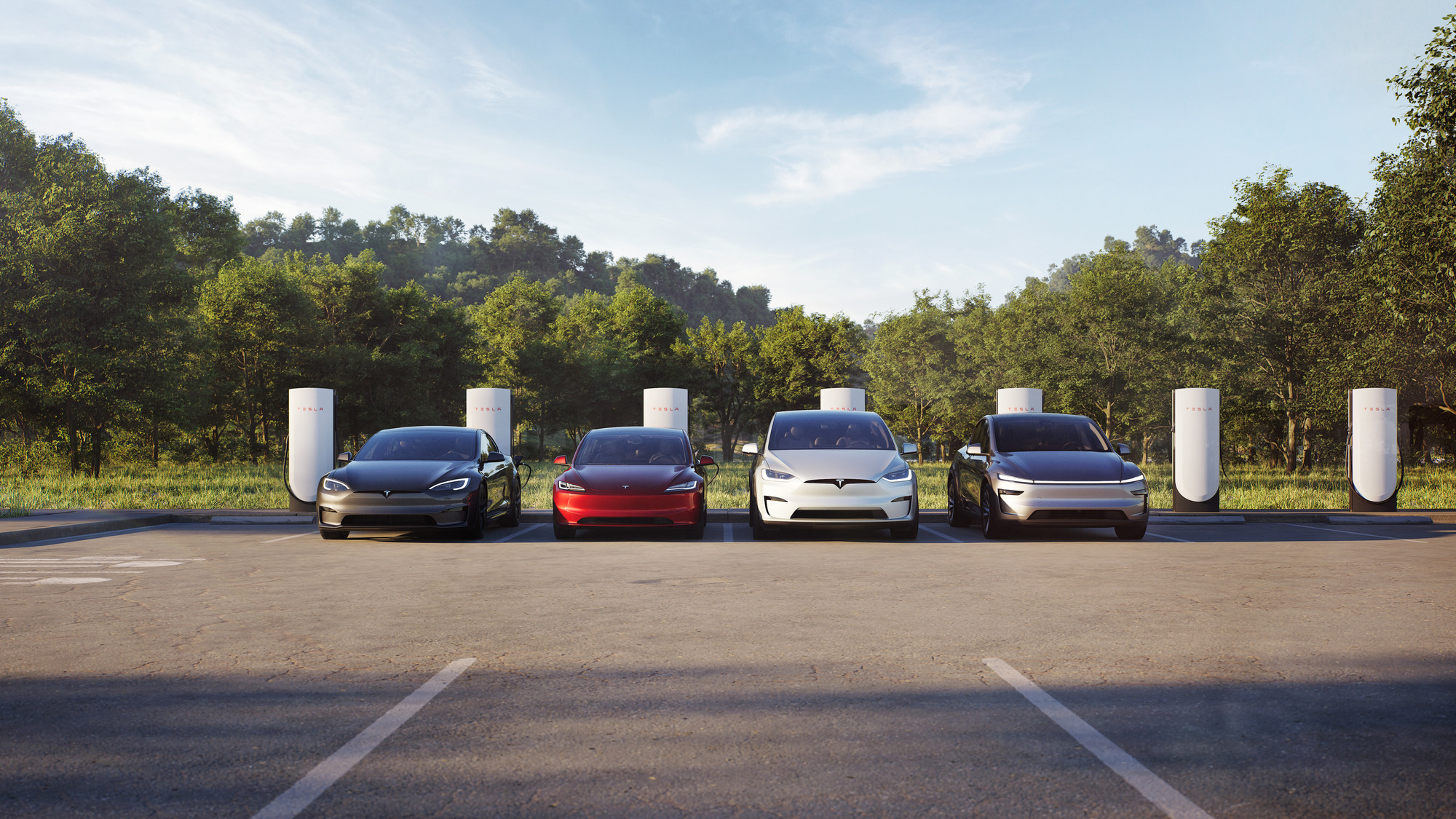
Tesla has dominated the Cars.com Made-in-America Index with a clean sweep of the top four spots. All four Tesla vehicles that were eligible for the analysis placed in the top four.
The Model 3 overtook the Model Y for first place this year. The all-electric crossover was first in 2024, but the Model 3 managed to overtake its sibling vehicle to claim the top spot in 2025. The Model Y took second, while the Model S took third, and the Model X took fourth.
This is an improvement from last year, as the Model Y took first, but the Model S and Model X placed fourth and ninth, respectively. The Model 3 was not in the Top 10 in 2024.
🚨 BREAKING: https://t.co/PXZ0g1qn0E’s American-made Index for 2025 is here, and Tesla has swept the TOP FOUR spots with the Model 3 and Model Y leading the way.
The Model S and Model X follow. pic.twitter.com/7PRepTHPBe
— TESLARATI (@Teslarati) June 17, 2025
“Tesla continues to lead, claiming the top four spots and showcasing its commitment to domestic production. About 25% of the more than 400 vehicles on sale in the U.S. made this year’s AMI, and whether a vehicle is No. 1 or No.99, it contributes to the U.S. economy,” Patrick Masterson, lead researcher for the program, said.
More than 400 vehicles were analyzed for this year’s study, with Cars.com officially ranking 117 of them. There were two other EVs in the Top 10, as the Kia EV6 took sixth place, and the Volkswagen ID.4 finished in tenth.
This year’s study reflected major geographic and strategic shifts across the automotive industry. Of the 117 vehicles ranked in the program, they were produced at 36 domestic factories, leaving only 11 total factories that did not yield a car on the list. There are 47 assembly plants in operation in the U.S.
However, there still has not been a vehicle to quite reach the 100 percent domestic parts content, something that is extremely elusive. Masterson says the global supply chain is still extremely crucial to even the most American-built cars on the market.
The average domestic parts content of the Top 10 cars was 83.4 percent in 2006, but that number has shrunk to 70.3 percent in this year’s rankings.
Some might wonder where cars like the Tesla Cybertruck or Rivian R1T are on the list. However, these vehicles did not qualify because the study only considers cars under a gross weight of 8,500 pounds.
-

 News1 week ago
News1 week agoI took a Tesla Cybertruck weekend Demo Drive – Here’s what I learned
-
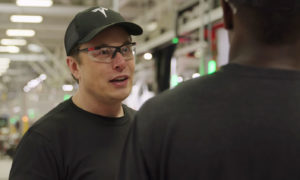
 Elon Musk2 weeks ago
Elon Musk2 weeks agoElon Musk explains Tesla’s domestic battery strategy
-
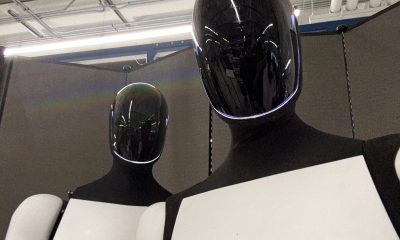
 Elon Musk1 week ago
Elon Musk1 week agoTesla tops Cathie Wood’s stock picks, predicts $2,600 surge
-
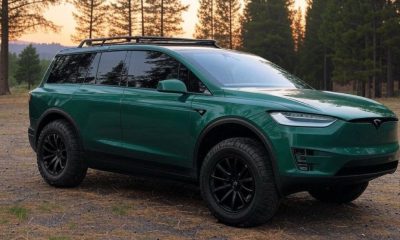
 News2 weeks ago
News2 weeks agoTesla is missing one type of vehicle in its lineup and fans want it fast
-
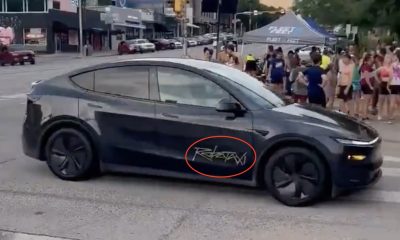
 News1 week ago
News1 week agoFirst Tesla driverless robotaxi spotted in the wild in Austin, TX
-
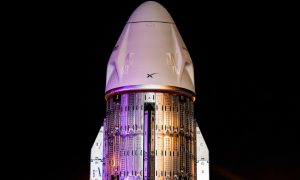
 Elon Musk2 weeks ago
Elon Musk2 weeks agoSpaceX to decommission Dragon spacecraft in response to Pres. Trump war of words with Elon Musk
-
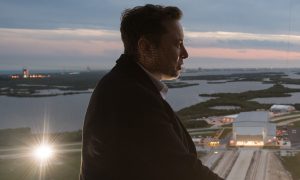
 Elon Musk1 week ago
Elon Musk1 week agoX account with 184 followers inadvertently saves US space program amid Musk-Trump row
-
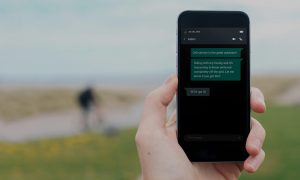
 SpaceX2 weeks ago
SpaceX2 weeks agoTelstra Unveils Starlink-Powered Satellite Text Messaging in Australia


